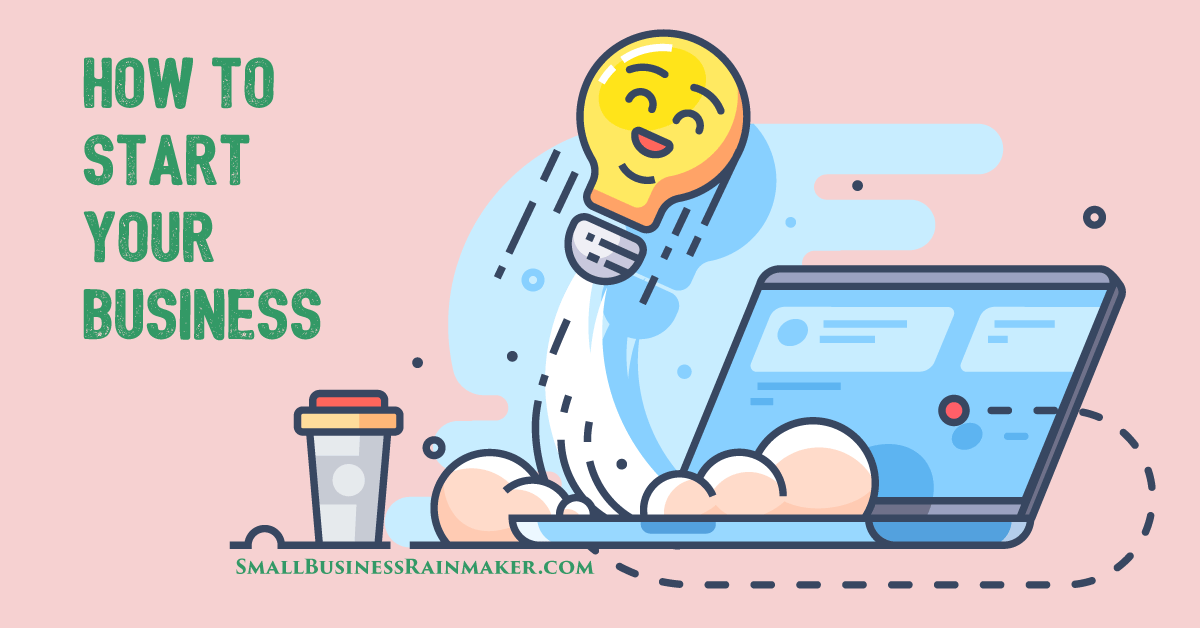
I started my first business in high school, typing (with a typewriter) student papers and small business correspondence. My marketing plan consisted of a small, inexpensive newspaper ad. I had almost zero overhead. I already had the typewriter and my clients provided the paper.
Years later, I owned and managed an organic garden center for a number of years. Then, after working in various jobs and industries for other companies, I made the leap into forever entrepreneurship in the careers industry, helping executives land jobs they covet and deserve. I made the decision at the beginning that I’d always be a solopreneur. I didn’t want to hire employees.
Being an entrepreneur is not for everyone. But for some of us it’s the only way to make a living. Now I can’t imagine working for anyone else. It’s been said that true entrepreneurs are unemployable, meaning we’re not good at being employees. We’re much more productive when we plan our own work, and control our work days.
Among the many things I love about being an entrepreneur:
- Making business decisions on the fly and moving forward in an instant with a new idea, without having to run it by anyone else or wait for approval.
- Taking calculated risks and sucking it up if it doesn't work, but learning from my mistakes and re-jigging for a second try.
- Reveling in the thrill of the big wins, when a new product or service launch lands fast and well.
- The potential for unlimited income, if I do things right.
- Taking time off when I want, without being accountable to anyone but myself.
- Having a variety of responsibilities every day, juggling every aspect of running a small business – from the accounting and office management to client care, marketing, sales and business development.
Those are some of the big positives. Of course, there are negatives:
- Minimal income in the early years.
- None of the benefits and perks employers provide – paid vacations, sick pay, health insurance, pay raises, etc.
- No steady paycheck or set income.
- No set processes and procedures in place initially to guide you.
- Loneliness and lack of co-workers to interact with, if you work alone all day.
Checklist for Starting Your New Business

Here’s a checklist of questions to ask yourself to help you determine whether starting a business is right for you, and the things you’ll need to do to get started.
Do you have an entrepreneurial mindset?
See if the things I said above that I love about being an entrepreneur resonate with you. Are you someone capable of, and wanting to, run the whole show?
Have you chosen the right kind of business for you?
Anticipate the day-to-day responsibilities and activities involved. Be sure this business requires that you use your strengths and talents often. Don’t choose a business in which you’ll mostly be doing things you don’t enjoy or don’t do well.
Does the business you’re considering meet your lifestyle vision and values?
Make sure your new business venture will allow you to maintain the lifestyle and values that are important to you.
Have you identified your target customer/client and niche?
Do some research to see what kind of people will need and want to buy your products and services. (More about this below.)
Do you understand what your brand is all about?
What differentiates you, as the provider of your services and products, AND your business as an entity? (More about this below.)
Have you selected a business model that fits your needs?
- Will your business be totally e-commerce, totally brick-and-mortar, or a mix?
- Will you be a solopreneur or hire employees?
- Will you operate 24/7/365 or otherwise?
Have you designed a viable product or service to kick-start sales?
Test your product or service well in advance of starting your business to be sure it’s something people really need and want.
Are your funding and finances in order?
Most new businesses are not like my first endeavor that didn’t require any funding. You’ll need money to get started, whether through a bank loan, personal loan, investors, or your own savings. (More about this below.)
Do you understand all the legalities involved?
A number of things need to be put in place before you ever open your door to customers or clients. Don’t try to shortcut or sneak through without doing these things. (More about this below.)
Have you set value-based pricing for your products and services?
If you price too low, your business may not be sustainable and people may not value what you offer. If you price too high, you may not be able to compete with others offering similar products and services. (More about this below.)
Have you formulated a marketing plan?
Decide how you will get the word out about your products and services. Consider both traditional marketing (direct mail, print media ads, etc.) and digital marketing (social media, video, email campaigns, etc.) (More about this below.)
Have you set the date for your first launch and planned it well?
Give yourself time to do it right. Pull all the pieces together, and double-check to be sure you haven’t forgotten anything.
Will you use key metrics to track your business’s progress?
You need to thoroughly analyze sales, work and financial results. Business metrics include:
- sales revenue
- net profit margin
- gross margin
- sales growth year-to-date
- cost of customer acquisition
- customer loyalty and retention
- qualified leads per month
- conversion rate
- website traffic
- and employee happiness.
Have you set up systems to increase your efficiency and save time?
A business process is simply how you accomplish any given task, how you get from A to B. Every business has dozens of processes at work during the course of a day. The problem is most business owners don’t invest time in documenting, measuring, and managing these business processes.
The Fundamentals of Setting Up Your Small Business
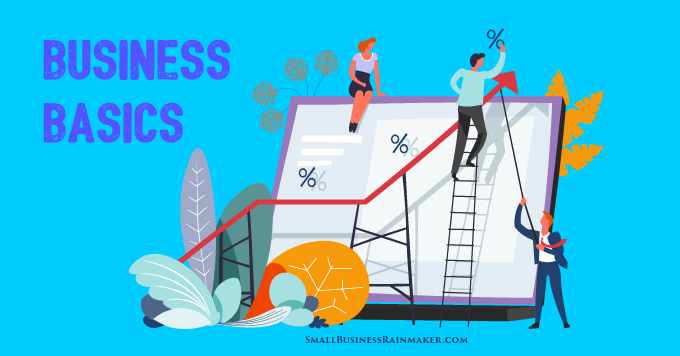
Now let’s take a closer look at some of the points in the checklist above.
Once you've decided to move forward and put your great business idea into action, you'll want to be sure you follow best-practices guidelines.
Start with the Business Basics
Business setup expert Raj Herry laid out some basics:
1. Build a business plan
When building a business plan, make sure you define what your business is all about and how it can benefit others. It should also include your goals and priorities, your target market and how you will reach them, and your financial forecast.
2. Conduct market research
Market research is done prior to actually setting up shop, and continues later on when you’ve already established your foothold in the market.
It gives you the opportunity to find out how unique your planned product or service is and helps you identify and study your potential competition. You get to know about your target market and gain valuable insights about what’s out there and what’s missing.
3. Take care of all the legalities.
Some of the things you have to do:
- Officially register your business name
- Choose your business structure (LLC, corporation, partnership, etc.)
- Apply for all necessary licenses and permits
- Acquire your state tax and federal tax ID
- Apply for trademarks, copyrights, or patents
4. Get your financing in order
Make sure you have funds in place to sustain operations for a year or so, or until you turn a profit. If you still need funding, options include:
- Taking out a bank loan or microloan
- Venture capital funding
- Crowdfunding
- Angel Investors
- Borrowing from family and friends
5. Set up your accounting processes
You can try doing the accounting work yourself if you are capable and if you have time. But you can also consider hiring a full-time or part-time accountant and/or bookkeeper. With their help, you can focus more on the other aspects of your startup.
If you do the work yourself, it makes sense to invest in the right accounting software for your business.
Our colleagues at Crazy Egg released their in-depth reviews of the best accounting software options for most small business owners. It includes pros and cons on each of the following popular platforms:
- QuickBooks – Best for most businesses
- Sage Business – Best accounting software for basic needs
- FreshBooks – Best accounting tool for freelancers
- Zoho Books – Best for managing accounts on the go
- Xero – Best for businesses that want to stay small
- Kashoo – Best quick-setup accounting tool
6. Create your marketing strategy
Even if you don’t have a huge budget for marketing, there are many affordable and even free ways to promote your new business. These include:
- Social media marketing
- Content, video, and visual marketing
- Networking
- Word-of-mouth or referrals
- Coupons
- Free trials or samples
You'll find a boatload of marketing ideas in my article, 36+ Compelling Types of Marketing Strategies for Small Business.
Work on Targeting and Niching
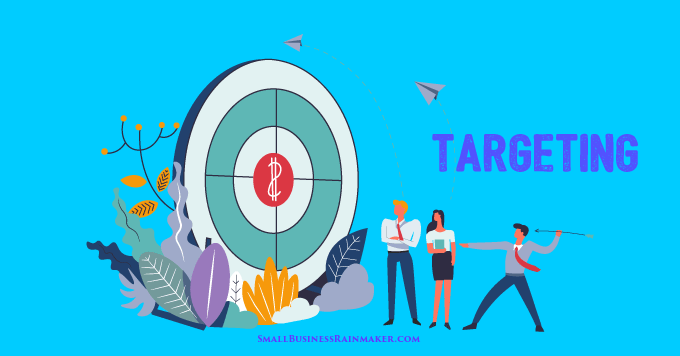
This is something you should do very early in the game. Too many startups think they should offer a wide range of products and services right from the get-go, to appeal to the widest range of customers or clients.
One of the biggest mistakes I made with Executive Career Brand, my current business, was not niching to c-suite, or top-level, executive job seekers and offering only select services at the start. It seemed counter-intuitive to me at first. Why not keep myself wide open to work with any and all job seekers, and provide all kinds of job search services?
Turns out niching is a smart move. With research, niching helps you put yourself in your target market’s shoes. You learn their pain points and what problems of theirs you’re uniquely qualified to help them solve. Since you know who you’re marketing to, and how you can help them with specific problems, you’re better able to write hard-hitting marketing materials (blog posts, website pages, articles, etc.). And businesses that niche (or specialize) typically command higher fees than generalists.
For me, keeping a rein on the services I offer makes being a solopreneur possible. Too many services would mean I’d need to hire help, and that’s not the kind of business model that works well for me.
Define and Build Your Company's and Your Own Brand
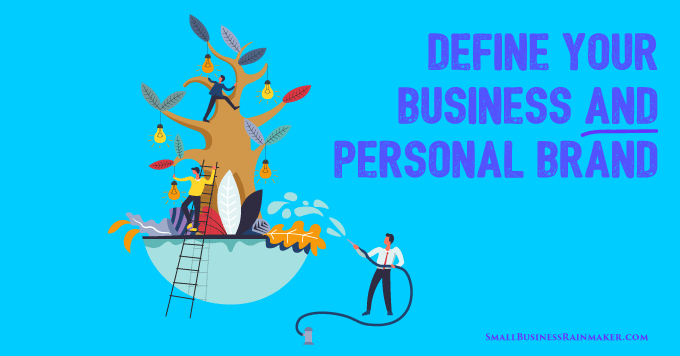
Work on branding before you launch the business – not just business branding, but personal branding as well. It will help you with niching, knowing your target audience and what kind of messages to communicate in social media and other marketing, and – one of the biggest benefits of branding – it will help you understand the value you offer. Every successful and fulfilling business stems from that.
Writer Tanya Mayer offered brand-building tips:
Be unique
To attract more customers and investors alike, you have to offer something the market still hasn’t heard of. Your product or service has to be genuine enough to provoke wonder, curiosity, or even shock.
Create a memorable logo
Once you decide on your main product or service, you need to create a good name and a memorable logo. Some companies choose to do this later, but you’ll have the highest chances of success if you differentiate yourself from the others early on.
Define your ideal customer
Once you've defined your mission, it’s time to define your target audience.
- Who are the people that are going to buy my service or product?
- Why do they need it?
- How long will it be of use?
Let your customers become your brand ambassadors
If you keep your customers happy and satisfied, and build rapport with them, each and every one of them will be a walking representative of your brand.
Do everything with quality
Quality is non-negotiable. Whatever you are offering, stand behind your product with pride. That implies that the quality should match the price.
Be consistent
Because you probably won't be a known entity at the beginning, your brand messaging needs to be consistent. For instance, what you say on your website has to match your Facebook page.
Be bold and daring
Being courageous will get you further faster than relying solely on the quality of your service or product. Don’t be afraid to speak your mind and present your brand as the best possible product or service.
Don't be a copycat
Do not in any way try to copy one of the big brands. Avoid making comparisons – others will do it for you. Unless you want to fade away in the sea of other small businesses, remain true to your vision and drive.
How and Where to Get Money to Start Your Business

Most new businesses will require a hefty initial investment. And since most businesses don't see a profit for at least a year, you'll need ongoing funding to stay in business.
Marketing specialist Elaine Bennett offered some tips on raising funds:
Angel investors
If you convince angel investors to help you, in return for their financial aid, they will ask around 25% ROI. The trick is convincing them in the first place. It's important to understand that investing in a startup business is a calculated risk for investors.
You must present proof that your business will be able to succeed – a developed business idea and plans, proof of concept that consumers are interested in your products or services, financial forecasts and so on.
Venture capital (VC)
Although similar, angel investors and VCs have a different agenda when supporting businesses with funds. Angel investors support passionate business owners whereas VCs support a more aggressive mindset.
VCs will support business ideas with a potential to become profitable in 3 to 5 years tops. In other words, get-rich-fast is the kind of attitude VCs normally look for. In exchange for their financial support, they want shares of your company that will make them part of the decision-making process.
Funds from investments
If you're relying on your own savings for startup capital, consider investments to maximize your ROI – stocks, bonds, shares, mutual funds, etc. Other investments could include real estate, antiques, gold and other precious metals.
Bank loans
Although bank loans are a good option, banks tend to be picky when approving loans because the risk is high for them.
They will check your credit score and credit history to determine the level of liability. If your credit score is low, you may be denied for a loan or charged a high interest rate. Banks may want you to provide collateral as leverage for your loans, such as a property or a vehicle. And it may take some time before you get a loan approval.
Common Obstacles New Entrepreneurs Face

Being your own boss is a dream for many but, unfortunately, most small businesses don’t survive long term. There are many challenges for start-ups. Being aware of the obstacles you may face can help you surmount them with more ease, and perhaps avoid some potential problems.
Business manager Emma Worden described 4 pitfalls you may have to deal with:
1. Deciding when to quit your day job
"First of all, you need to ask yourself whether you’ve got the means of supporting yourself until your newly created startup becomes profitable. Secondly, you need to consider the fact that a brand new startup tends to guzzle money – there is a lot of investing to do until a business endeavor becomes self-sustainable."
2. Adjusting to an entrepreneur’s work life
"Sometimes you will have to work for 15 hours straight. There is no guarantee that you won’t have to be at the ready even when sick, and paid holidays are an unachievable dream.
Yet you shouldn’t let this deter you from the entrepreneurship path. While some days you will have to work a lot, there will be days that you will work as little as half an hour – you are your own boss, and this means a lot."
3. Managing the financial challenges
"Unless you’re pretty well-off to begin with, you’re going to face financial difficulties in the very beginning of your business endeavor, even if you decide to keep your day job. In fact, you’re probably going to need to find an investor or take out a loan, to cover your business’s financial needs.
Of course, checking your credit report goes without saying. If you want to apply for a loan, and if your credit doesn’t happen to be in shape, you might want to avoid having to wait until it’s fixed, as this can take a long, long time. In any case, you need to take a long and hard look at your finances before jumping into a business effort."
4. Hiring a perfect team
"It is essential that you realize that you’re not looking for professionals who will gladly perform well if they are happy with their paycheck. No, you’re looking for a team of pros who will share your vision, motivation and end goal – people who won’t be reluctant about working overtime for a regular wage. As an entrepreneur, you know how important it is to work for the sake of success, not only money. Your employees need to share this quality with you."
How to Jump Start Your New Business on a Tight Budget

Most people are on some kind of budget when they start their business. If you're not, you'll still want to keep the reins on your finances to avoid runaway spending.
If you're on a very tight budget, you'll want to get the best bang for each dollar you spend. And, you'll want to use any tools you can that are free, but pack a punch. Small Business Rainmaker's Founder Andre Palko offers 10 guerrilla marketing ideas, most of which cost nothing.
Here are some low-cost ways to grow your business:
Social media marketing
Every business, whether you're a brick-and-mortar establishment or an e-commerce entity (or a little of both), needs to be active on social media. Some of your social media marketing can be entirely free, or extremely low cost. It costs nothing to set up social media accounts.
Put together a social media marketing plan that you can realistically manage. LinkedIn and Facebook (especially for local business) are a must. Twitter should be considered. And be sure to use video and visuals liberally.
Content marketing
Another must-do is setting up a company website. Although you’ll be using various other social media channels, you still need a website because:
- Your website is your main hub, your business powerhouse. Your various social media channels spoke out from it.
- Each page on your website is another web page associated with your company. More web pages mean better online visibility.
- Your website will probably be the first search result when potential customers Google “your business name”. . . NOT your LinkedIn, Facebook, or other social media page.
- If you have no website or a poor one, or one you never update or touch, potential customers will wonder whether your business is real. You’ll turn off lots of people.
- You have complete control over your website and any content on it. A claim you can't make about any other social media platform.
- A blog on your website will exponentially boost your site’s SEO and increase your reach, visibility and engagement. Whenever you post to your blog, you can cross-post on your various social media channels.
I use and recommend using WordPress for your website, and so does e-commerce manager Asim Bawany. His reasons for recommending WordPress include:
- It's free.
- It consists of a vast community of users.
- It offers a wide variety of functionality-enhancing plugins.
- It offers several visually-appealing themes.
- It's easy to use.
- It's secure and reliable.
- It's SEO optimized by default.
Email marketing
Every business also needs to get in gear from the get-go with an email campaign. From the first day you’re in operation, you should be collecting email address from anyone, whether they purchase something from you or not.
They are many email marketing platforms to choose from. MailChimp is a good one, and it's free for up to 2,000 subscribers. That should work for quite a while for most new businesses. If you go over that limit fast, and have to start paying for your email marketing, good for you! That means your message is hitting home with people.
Internet marketing author Peter Ellington was hesitant about sending out a regular newsletter for his business:
"When I first starting learning about email lists, I was concerned that they seemed a bit ‘spammy’ and exploitative. Like most of you, I'd been bombarded with tons of unwanted emails that I didn't really sign up for. That's why it's important that you build a list properly and treat it with respect.
Don't trick anyone into signing up. Offer them value up-front and be straightforward with them. Don't bombard them with tons of emails every day, just hand-pick a few valuable offers that they really could be interested in. Make it quick and easy for them to unsubscribe. And don't sell your list to other marketers.
I started carefully building a list by offering a free 20-page report. It was actually something I had previously sold for $10, so it was decent value, and not some throwaway trash."
The Legal Aspects of Opening a Business

Digging more deeply into the legalities, attorney Al Tamimi detailed some of the legal requirements you may have to satisfy:
Trademark
Before selecting your business’s official name, perform a meticulous search online first. Find out if there is another business operating under the name you’ve come up with. Do this to avoid infringing upon another company’s trademark and getting caught up in a trademark opposition action.
Once you’ve selected your official company name, consider registering your trading name and logo (if you already have one) as a trademark. This will prevent others from registering their company under the same name.
Licenses
The licenses you will need depend on the kind of business you'll be running. At the very least, you will need a business license, trading license, and sales tax permit.
It is best to do some additional research and contact relevant local government agencies to learn more about the specific licenses you will need to legally run your business.
Zoning laws
Make sure that the location you choose is properly zoned for the type of business you plan to operate. Do some research or ask local government bodies to be certain that you can open your business in that area.
Do not make the costly mistake of assuming that your zoning is appropriate just because your business is similar to the ones already located there.
Relevant health and safety laws
Along with ensuring that your employees work in a safe, healthy environment, you have the duty to look after the well-being of anyone including clients and visitors inside, outside, and near your business premises.
It is highly recommended that you carry out a risk assessment to help identify the risks posed to individuals by your business activities. You then have to mitigate these risks or hazards as much as possible.
Insurance
Most businesses with employees will need employer's liability insurance. But aside from being a legal requirement, when you have sufficient coverage, you will avoid incurring fines every day that you are uninsured. You also avoid leaving yourself vulnerable to compensation claims from employees and visitors who may get injured or sick while they are in your premises.
You may also want to consider investing in public liability or professional indemnity as well.
Confidentiality and non-disclosure agreements
If you will be working with a bank or other partners for business financing or entering into contracts with suppliers, make sure you have the right confidentiality and non-disclosure agreements.
These parties will have access to business information that you may want to keep private and, as such, you should consider preparing these contracts. Make sure your partners and suppliers sign them as well.
Pricing Your Products and Services
Pricing, of course, is critical in building a business that is sustainable, and will provide you the income you need.
Finance professional Gene de la Cruz, CPA described two easy pricing methods to calculate what to charge:
1. Cost-plus pricing (the simplest way to price)
You simply get the total of all costs of producing one unit of your product or service.
If you’re into manufacturing products, your costs will include all direct materials and labor needed to create the product.
If you’re a retailer or reseller, you will include only the amount you paid for the product.
Determining the cost of services is a little tricky. Go through your service routine and the costs you incur along the way. Margin will then be added to the cost of product (or service) to determine the appropriate pricing.
2. Target costing
Target costing is the opposite of cost-plus pricing. Instead of starting from the costs to determine the price, here you start with market prices in order to determine the limit of the cost you can use to create the products.
To determine the market prices, use the average. In this digital age, it’s so easy to snoop around the online stores of competitors. From there, you can get a rough estimate of how much the average market prices are.
If you have a unique product, consider similar products. Otherwise, you will become a price maker, that is, you can dictate the price in the market.
From the market price, deduct your desired profit margin, and then the remaining portion will be your target cost.
Andre Palko laid out some fascinating and surprising research about the psychology of pricing in The Key Barrier to Profitable Pricing Methods in Your Small Business:
"Although numbers are indeed a vital part of the pricing process, emotions govern how pricing works to a far greater extent than you might imagine.
The best marketers figured this out decades ago. Yet brain science is just now catching up and confirms much of what advertisers and sales people have long known. The unconscious mind directs more of our conscious, rational thought than we might care to admit."
Deciding Whether to Do a Side Hustle
What if you don't want to quit your day job, but want to keep it while you get your own business up and running?
Studies have shown that something like one-third of US workers have a side gig. This can be a great way to test the waters and see if being an entrepreneur is a good fit for you.
But side gigs can come with their own set of legal factors.
Andre cautions:
- If your side business does similar work to your primary employer, you could be at risk of violating a non-compete clause.
- Sharing your employer’s proprietary information can come with hefty fines.
- Taking out a loan to get your business going? You might want to consider an LLC to protect yourself from personal liability.
To keep your side hustle on the right side of the law, an infographic in his article by Lexington Law suggests:
1. Determine if it's a business or hobby.
Both have tax deductions that can save you some cash, but you need to know how to file.
2. Factor in taxes.
Taxes apply to all income. Report and pay on your side earnings when it's filing time.
3. Consider forming an LLC.
LLCs can protect you from personal liability for your business debt.
4. Know the laws that are specific to you.
Everything has unique legal considerations and there are many regional laws.
5. Don't use your day job's time and resources.
It can put you at risk of your employer firing you or claiming your intellectual property.
6. Check your employment contract.
Your day job probably has side job restrictions, especially if it's related to their business.
Getting a Foothold and Running a Profitable, Sustainable Business
Once your business is up and running, along with the day-to-day responsibilities, you'll have much to do to ensure it grows, and becomes profitable and sustainable.
Data Governance
Data recovery expert Jay Williams detailed three common mistakes startups make with their data:
1. Compliance – they’re unaware of relevant regulation
Fortunately, adhering to the caveats of the General Data Protection Regulation or GDPR is relatively straightforward. Provided you make reasonable efforts to ensure your data is secure and have a transparent privacy policy, you’re likely to be compliant.
2. Analytics – they don’t analyze their online marketing metrics
With digital marketing now an integral part of most startups’ plans to enhance their visibility, analyzing what does and doesn't work in your marketing campaigns is critical.
If you’re running paid search campaigns with Google, you can analyze a variety of key metrics such as click-through-rate, conversion rates and the amount you pay for each meaningful action a user makes on your website.
Analytical tools may show, for instance, that visitors are far more likely to convert when using a desktop, suggesting that you may need to review your site’s layout on mobile devices.
Perhaps users are more likely to leave your site while they’re on a certain page and you should therefore review the content on it.
3. Protection – they don’t back up their data
People tend to take their storage media for granted and don’t even consider the possibility of failure and data loss. Data loss can – and probably will – prevent your employees from fulfilling their roles, you from managing your company, and can even stop your business trading for a period of time.
Boost Online Visibility for Your Brand

Marketing and customer service specialist Sneha Mittal advised small business owners to:
Invest in networking
Start your networking within your community by reaching out to other local small business owners in your area. Ask them questions about their business and you will realize that both of you face some common challenges in business.
Also, attend networking events in and around your city, and meet leaders and potential customers face-to-face. Complement your efforts by reaching out to these people via LinkedIn and other social media.
Listen more and speak less. The key to building strong relationships is to actively listen instead of simply talking about yourself.
Do the right social media marketing
The biggest social media mistake new small business owners make is to set up an account on all social media channels at once. The best strategy is to:
- Select 2-3 social media channels which make the most sense for your business.
- Watch your competitors and ask yourself which channels offer the highest chances of giving you quality leads.
- Use free tools like Canva and Unsplash to create graphic content for your social media channels.
- Use a free tool like Buffer or Recurpost to schedule your posts online.
Do content marketing that always places your target audience first
Content marketing is not just about generating interest and building a brand for your business. It provides value to your users and therefore helps build trust. And it's relatively inexpensive.
Always keep the sales funnel in mind when working on content marketing efforts. Which stage of the funnel you're aiming at and what kind of content customers will look for at this stage of the funnel will determine what type of content you provide them.







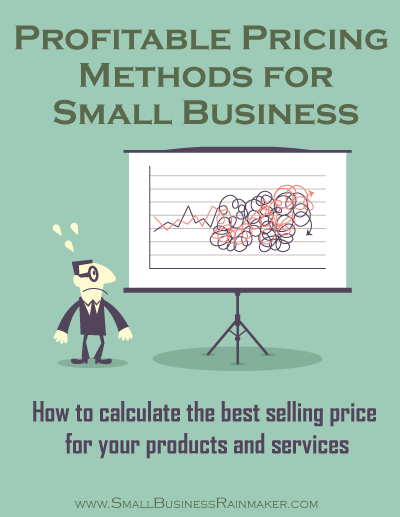
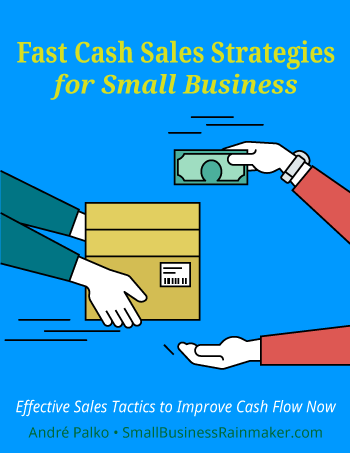
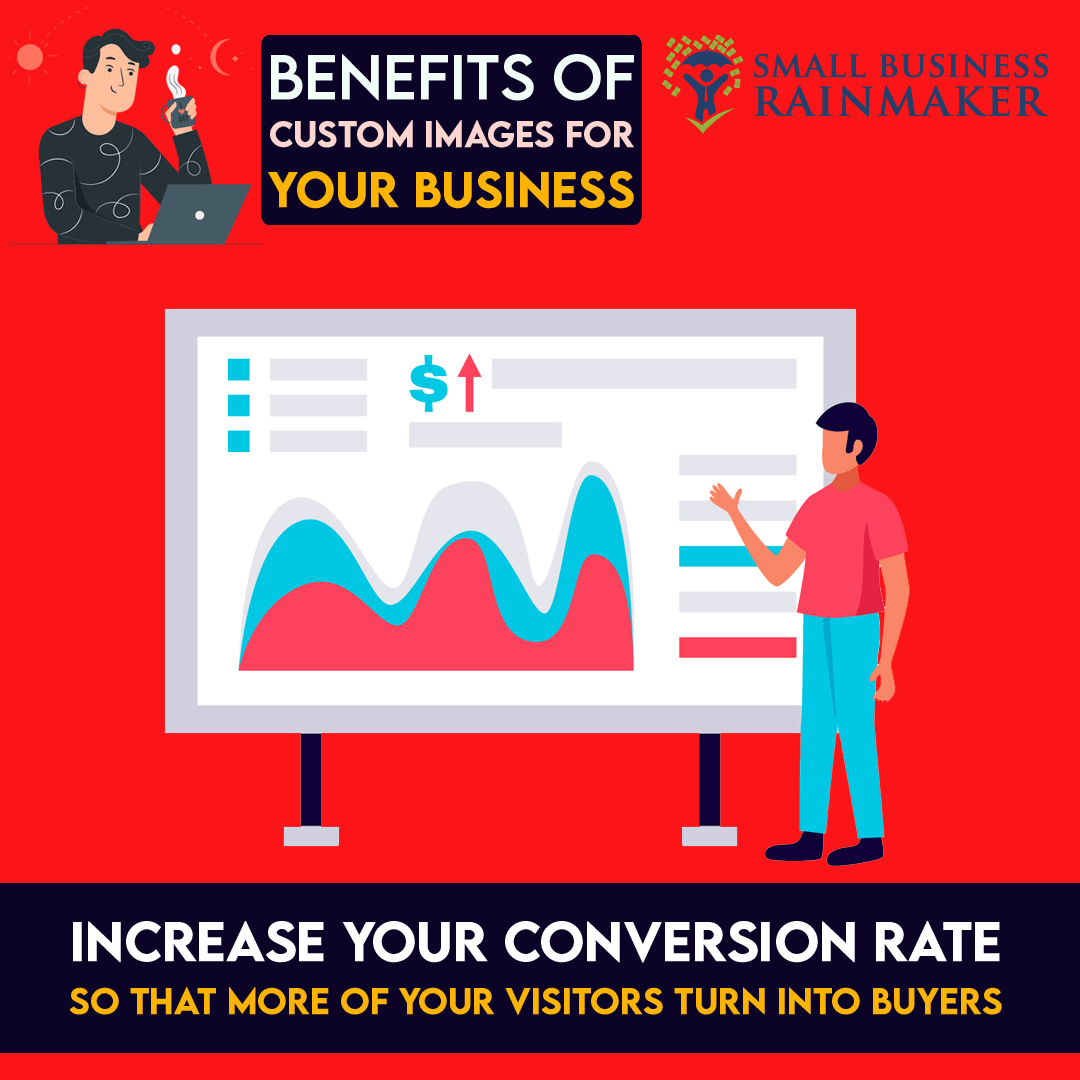


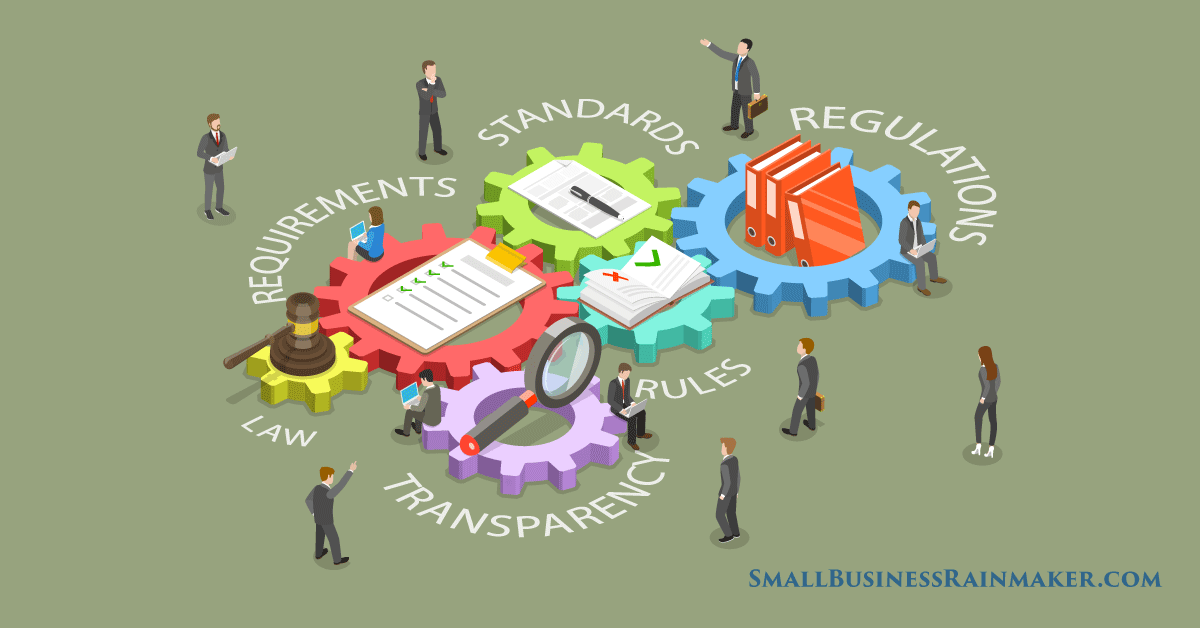

Leave a comment